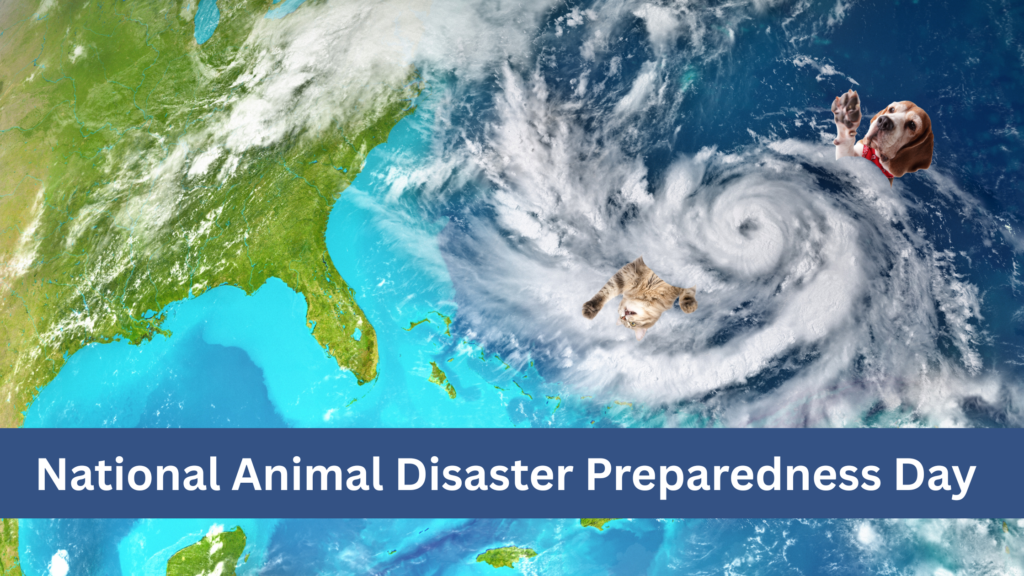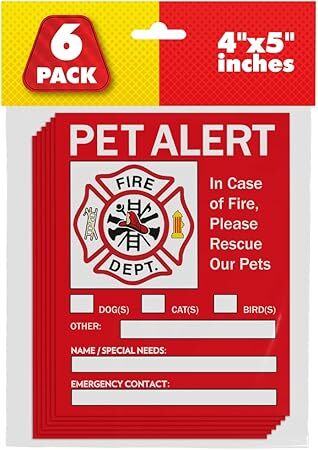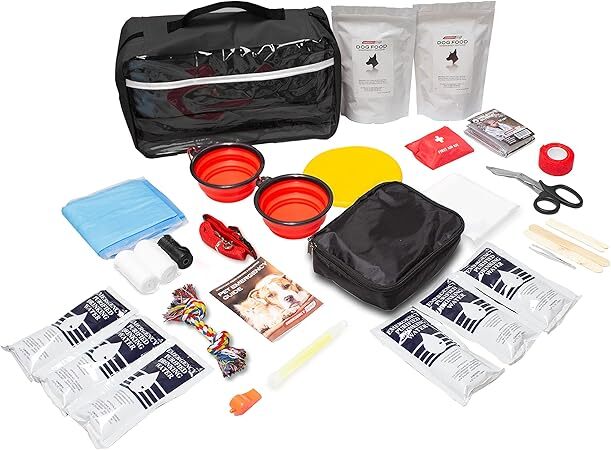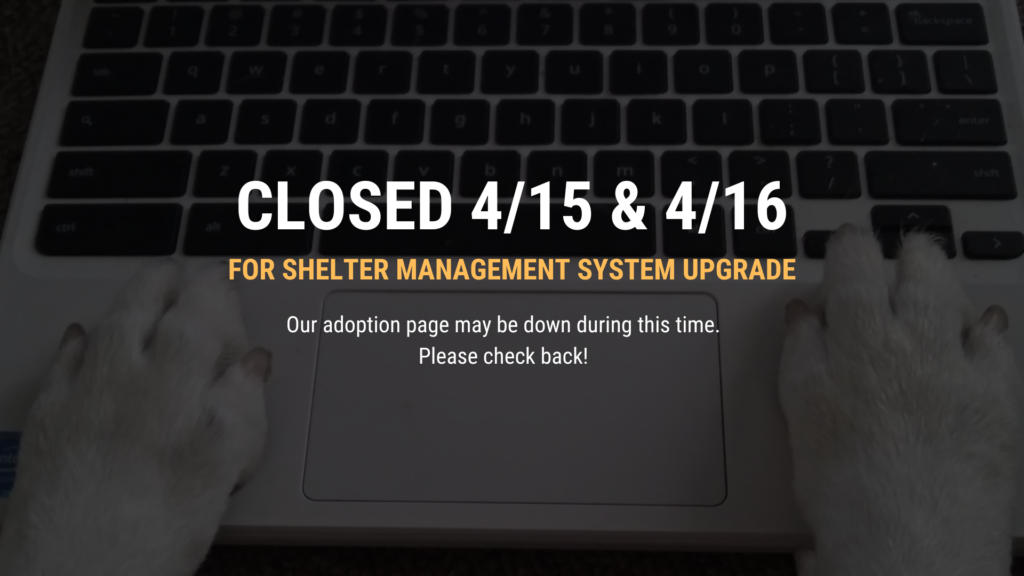
May 8 is National Animal Disaster Preparedness Day, and the Fredericksburg SPCA wants to remind everyone about the importance of preparing for emergencies to ensure the safety and well-being of your pets, no matter what happens. Established by FEMA, this day emphasizes the need for pet owners to plan ahead and make sure their pets are included in any emergency preparedness efforts.
Whether it’s tornadoes, hurricanes, wildfires, or other extreme weather events, having a disaster plan for you and your family is crucial. Ensuring you can quickly grab essential items and evacuate at a moment’s notice, or, properly prepare your home to withstand severe weather – it will help protect your loved ones. However, it’s just as important to remember your pets rely on your preparedness to keep them safe during these events. To help you feel ready for anything, we’ve compiled some helpful tips:
- Microchip Your Pets
Make sure your pets are microchipped and their microchip information is registered with up-to-date contact details. In case your pet goes missing during an emergency, a local shelter or vet can scan your pet for the chip and work to reunite you quickly. Not sure if your pet is microchipped? Check with your vet for a quick scan, and if needed, schedule an appointment to get your pet chipped. It’s a simple but essential step in ensuring your pet’s safe return. - Get a Rescue Alert Sticker
Apply a Rescue Alert Sticker to your home and car. This easy-to-use sticker should be placed on or near your front door and inside your vehicle to let emergency responders know how many pets to look for in the event of an emergency. Include details like your pet’s breed, name, any special needs, and the contact information for your vet or emergency contact. If you must evacuate and time allows, write “Evacuated” across the sticker to inform responders your pets have been moved to safety.
Need a Rescue Alert Sticker? You can purchase one here: https://a.co/d/c8a5ZM0
(No, we’re not affiliates – we just want you to be safe!) - Arrange a Safe Haven
DO NOT LEAVE YOUR PETS BEHIND! If evacuation is necessary, make sure you have a safe place for your pets to go:
- Check with your vet to identify local boarding facilities that can temporarily house your pets.
- Identify hotels or motels outside your area that accept pets.
- Ask friends or relatives if they can take in your pet temporarily.
- Prepare Emergency Supplies & Traveling Kits
Ensure your pets have everything they need for an evacuation:
- Make sure all pets wear collars with tags containing updated contact information, including your name and telephone number. Write your pet’s name and your contact info on their carrier.
- Pack food, water, medications, leashes/harnesses, comfort items, litter, waste cleanup supplies, and a first aid kit to last several days in case you need to evacuate.
- Carry recent photos of your pets and digital copies of their medical records for quick identification and medical treatment if necessary.
Need a pet first aid/evacuation kit? You can purchase one here: https://a.co/d/jcg8jOj
- Keeping Your Pet Safe When Staying Home
Even if evacuation isn’t required, there are still steps to ensure your pet’s safety during a weather event:
- Keep your pets inside during extreme weather events to limit the risk of injury from flying debris or getting lost if they’re startled by loud noises.
- Stock up on essential supplies for your family, including food, water, medications, first aid supplies, power banks, and entertainment items in case of power outages.
- Keep a weather radio tuned to NOAA stations for emergency updates.
- Secure outdoor furniture, toys, pools, and other items that could become flying debris in strong winds.
Emergencies and natural disasters can happen at any time, but by preparing in advance, you can ensure your pets remain safe and sound during these events. If you have any questions or need further information on how to protect yourself and your pets, reach out to your veterinarian or local Animal Resource Centers for assistance.














